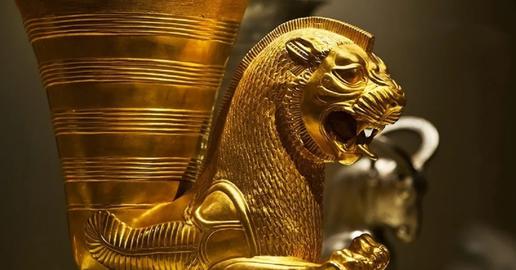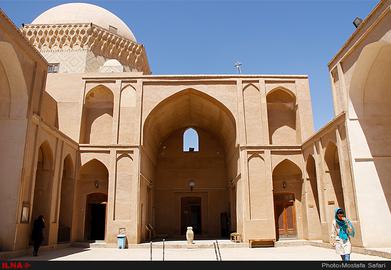News of a bill being tabled in parliament for the sale of potentially priceless antiquities has sparked uproar in Iran. On Wednesday, May 11, 61 professors of archeology signed a joint letter of protest to Mohammad Bagher Ghalibaf, speaker of the Iranian parliament. "Not only does this plan not prevent unprofessional excavations,” they wrote, “but it also legally authorizes looters to destroy our heritage.”
The so-called Bill for the Optimal Utilization of Ancient Objects and Treasures was introduced by 46 MPs. If passed it will put paid to a 100-year-old law that prevents the sale of certain archaeological finds, and in effect lay the groundwork for the plunder of Iranian cultural heritage.
Proponents of the 21-article bill say it would turn Iran into a hub for the antiquities trade, providing the country with a much-needed source of foreign currency and revenue for the Ministry of Culture and Tourism. They also say it would create jobs for history and archaeology graduates, and protect artefacts from being looted and sold to smugglers and middlemen at grievously low prices.
In other words, the sponsors want believe that a legal trade in antiquities – rather than an underground one – would bring in hard currency that Iran is currently desperately lacking and which, at the moment, is being pocketed by smugglers and traffickers. “Antiquities”, according to the bill, would mean items that are 100 years old or older. It would also put paid to a current ban on excavations in Iran, and the sale of historic items that are already in private collections.
Britain and Egypt: A Wilful Misleading of Domestic Treasure Laws?
The bill’s introduction states: “Governments have treated historical treasures differently. In some countries, such as Egypt, the sole means of income of some villagers next to Nile River is selling historical artifacts. In England, finders of such objects must inform the police… if a museum offers to buy an object then they will sell the object to that museum at a mutually-agreed price; if not, they can sell it directly”.
The co-authors were thoroughly wrong about what English law dictates on such finds. In England, finders of items that might be considered "treasure" - more than one prehistoric metal item, coins likely to be over 300 years old, or objects mostly made of gold and silver that seem to have been deliberately hidden - have to report it to their local coroner within two weeks. If a person fails to do this they can face an unlimited fine or three months in prison.
If the find is important enough, a "treasure inquest" will be held in a specialist court, where a coroner will decide if the item is "treasure" or not. If it is, the item effectively belongs to the state and museums can buy it from the finder and landowner at a price decided by the coroner. The person who found the treasure can make representations, but depending on what it is, they may still not receive any money at all. If this happens their only recourse is to appeal to the UK Culture Minister.
In response to the Iranian lawmakers’ claim about villagers on the banks of the Nile selling objects, the 61 Iranian archaeologists note that, on the contrary, Egypt has very strict laws governing the sale of historical objects, as codified in Amendment No. 117 of the 1983 Protection of Antiquities Law.
In essence, the law bans outright the sale of any Egyptian historical object or any attempt to send them out of the country. The 2018 amendment states: “Whoever steals, possesses, hides or collects an antiquity for the purpose of smuggling or is involved in such an act shall be punished with life imprisonment and a fine of not less than EGP £50,000 and not more than EGP £250,000.” There are also heavy fines for knowingly sequestering state-owned or registered antiquities.
An Unhinged Footnote
Article 17 is one of the most curious parts of the draft bill. If ratified, it would compel the government to buy a series of defined, highly valuable objects such as the Darya-ye Noor, one of the largest cut diamonds in the world and the twin of British Crown Jewels’ Koh-i-Noor, as well as the Cyrus Cylinder, and within a week register them as properties of the Islamic Republic of Iran.
The MPs backing of the bill are apparently unaware that Darya-ye Noor is already in the collection of the Iranian National Jewels (formerly Iranian Crown Jewels), housed at the Treasury of National Jewels inside the Central Bank of Iran. The state would therefore have to buy the diamond from itself.
The Cyrus Cylinder is a Babylonian account of the conquest of Babylon by Cyrus the Great in 539 BC which, according to biblical scholars, is evidence for Cyrus's repatriation of the Jewish people after their captivity in Babylon. It is currently in possession of the British Museum, meaning no law passed in Iran could by itself allow the Islamic Republic to take possession of it.
visit the accountability section
In this section of Iran Wire, you can contact the officials and launch your campaign for various problems



























comments